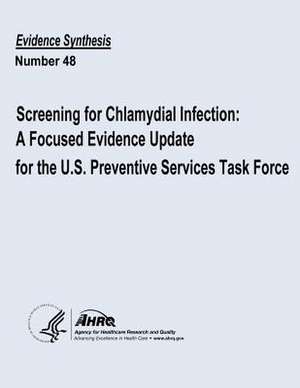Screening for Chlamydial Infection
Autor U. S. Department of Heal Human Services, Agency for Healthcare Resea And Qualityen Limba Engleză Paperback
Preț: 77.10 lei
Preț vechi: 81.15 lei
-5% Nou
Puncte Express: 116
Preț estimativ în valută:
14.76€ • 15.40$ • 12.37£
14.76€ • 15.40$ • 12.37£
Carte disponibilă
Livrare economică 19 februarie-05 martie
Preluare comenzi: 021 569.72.76
Specificații
ISBN-13: 9781490596709
ISBN-10: 1490596704
Pagini: 28
Dimensiuni: 216 x 279 x 2 mm
Greutate: 0.09 kg
Editura: CREATESPACE
ISBN-10: 1490596704
Pagini: 28
Dimensiuni: 216 x 279 x 2 mm
Greutate: 0.09 kg
Editura: CREATESPACE
